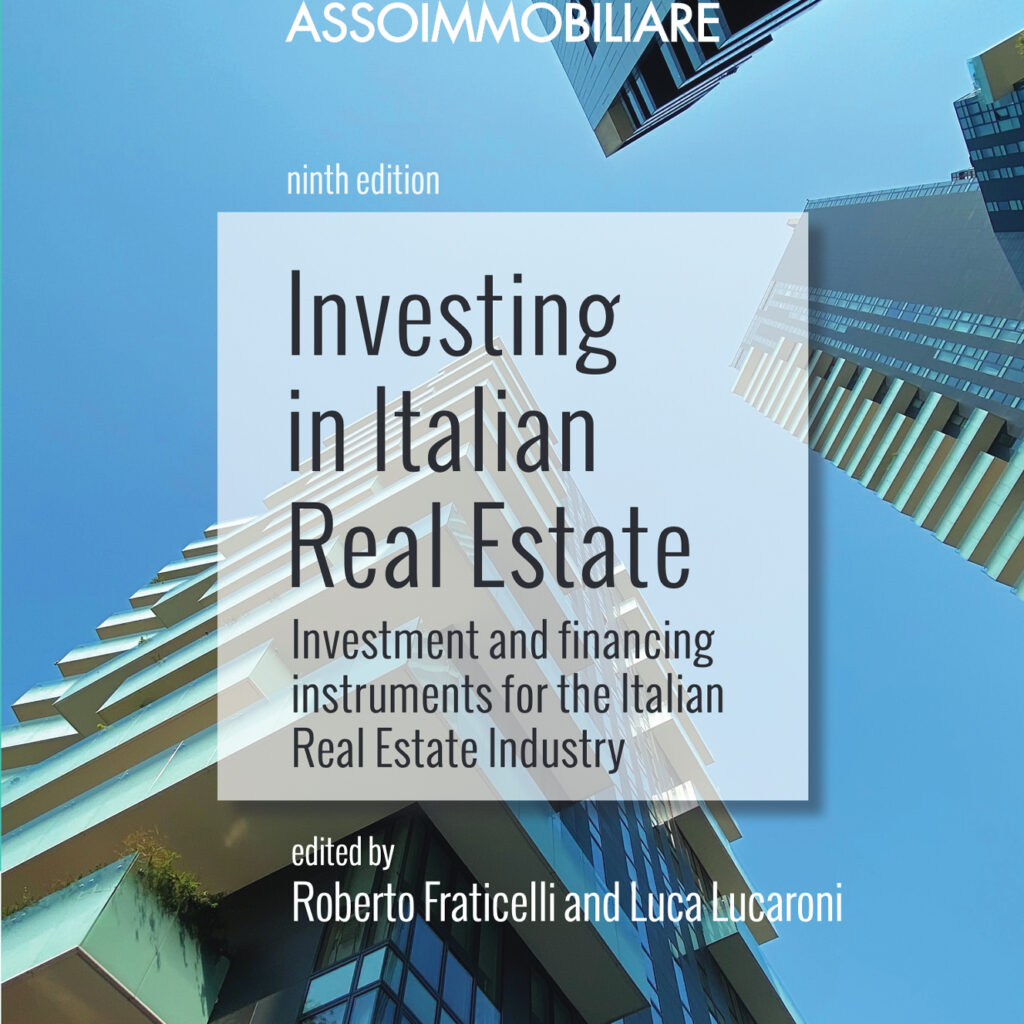The volume ‘Investing in Real Estate’ reached this year the ninth edition. The new text, updated to the most recent innovations in Italy, represents a complete and detailed guide to the investment and financing tools available to operators who are looking with interest at the Italian market.
There are several innovations produced by the Italian regulatory system every year for the real estate industry. With the aim of providing the reader with a qualified text, capable of grasping the most recent interpretations, Confindustria Assoimmobiliare can provide the incredibly valuable contribution of its Associates who, thanks to their collaboration with professionals, experts, and law firms, updated this book, now widely considered a benchmark for investors.
‘Investing in Real Estate’ is particularly aimed at foreign investors, that are increasingly important in the overall real estate business in Italy. The Italian industry, in fact, is characterized as an important destination for international capitals, with a constant growth in volumes in recent years. Foreign capitals correspond to about 70 per cent of total real estate investments in Italy, with net flows – the difference between investments and divestments – consistently positive for ten consecutive years.
Italian legislation, within this context, have to be able to develop intelligent and effective policy responses.
The urban regeneration of Italian cities generates widespread benefits throughout the Country and, to favor these operations, regulations play an important role. The introduction of principles such as the so-called “indifferenza funzionale” (urban functions of the building freely settled) of buildings is indispensable for the creation of constructions capable of making the most of modern technologies. Today, and more in the future, it is in fact the technological suitability of buildings that sets their function and uses, rather than rigid, a priori urban planning of intended uses, which is constantly called into question by the rapid evolution of demand and citizens’ preferences.
Equally relevant is the issue of taxation, where an organic approach to support operators capable of revitalizing entire areas would be able to generate benefits that would go beyond the construction of state-of-the-art housing units and bringing new part of a city to life.

For those reasons, we hope that the replacement of the building stock will be facilitated also through activities of demolition and reconstruction – without consuming new land – but favoring densification close to city infrastructures and mobility nodes. Exemptions from taxation on properties under regeneration or redevelopment, or through a revision of registration, mortgage and cadastral taxes for transactions involving the transfer of properties to be demolished and rebuilt, are some of the fiscal measures that the real estate community is asking for to the new government.
In addition to these proposals for upcoming legislation, there are the important objectives on the energy requalification of buildings, which our country has defined together with its European partners.
To facilitate the necessary interventions to improve the state of the building stock, we are recording important news. In the last Budget Law, incentives have finally been introduced for the purchase of properties under the best energy labels (A and B). The measure, which allows 50 per cent VAT discount when purchasing the property, is in line with the objective of positively orienting residential property purchasing behavior in a sustainable direction, structurally favoring building replacement and new construction in the two best energy labels also by real estate Collective Investment Schemes (OICR – in Italy)
This is a first – and much-awaited – measure to align our country with the European best practices, where the incentive to purchase energy-efficient real estate has led to increasing investments in the residential sector by real estate investment trusts in recent years.
The enlargement and the qualification of the residential rental market are processes that on a large scale can be carried out only by institutional investors in the real estate sector.
Assoimmobiliare, through the valid and concrete experience of its Associates, is confident that soon a new season of investment and urban regeneration will begin in our country. We will continue to work with conviction to support institutions so they will operate with the vision, courage and concreteness required to overcome the great challenges our sector is facing for the future and to transform them into opportunities for economic growth. Growth that is sustainable, inclusive and puts people’s well-being at the center.
Real estate investors are ready, with all their resources – capital, and innovative skills – to make them available: the goal is as ambitious as it is necessary.

